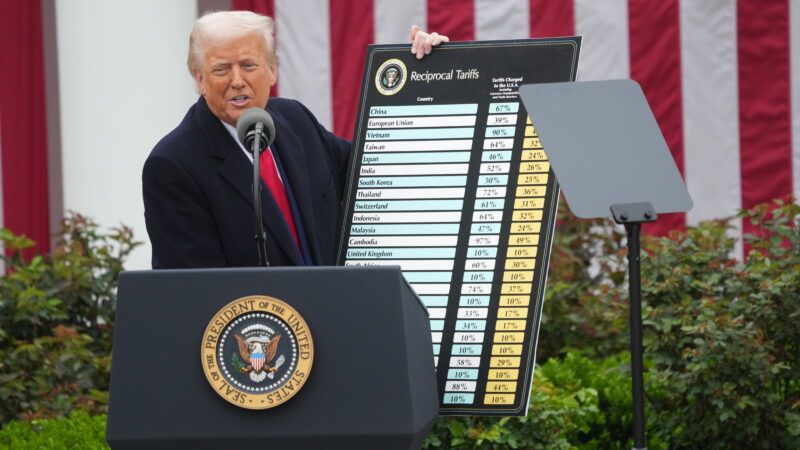Top Stories
Trump’s Tariff Claims Challenged by Economists Ahead of Supreme Court Ruling

UPDATE: A briefing from 45 American economists has challenged President Donald Trump’s claims regarding his tariffs, just ahead of a critical ruling from the U.S. Supreme Court. The economists argue that Trump’s justification for imposing tariffs on goods from nearly every nation is fundamentally flawed and raises urgent legal questions.
In April 2025, Trump declared tariffs essential to address a so-called “national emergency,” citing threats to U.S. security and the economy. However, the economists assert that trade deficits have been a longstanding reality, not an “unusual and extraordinary” crisis. They emphasize that tariffs are unlikely to solve the underlying issues and may actually exacerbate them.
According to the economists’ brief, trade deficits are common and do not present a threat to the U.S. economy. They argue, “Trade deficits have existed consistently over the past fifty years,” and therefore do not meet the criteria for invoking the International Emergency Economic Powers Act (IEEPA). This law, enacted in 1977, has never been used to impose tariffs, raising fundamental questions about Trump’s authority.
The Supreme Court’s decision will impact millions of Americans, as the economists warn that the tariffs could lead to a loss of trillions of dollars in economic activity over the next decade. They highlight that tariffs “unambiguously reduce total trade flows,” which could leave the trade deficit unchanged or even increase it.
As the Supreme Court prepares to hear arguments, the stakes have never been higher. The ruling could redefine presidential powers regarding trade and impact businesses and consumers alike. Experts are closely watching how the justices will handle the “major questions” doctrine, which requires clear congressional authorization for decisions of vast economic significance.
In light of these developments, the economists conclude that Trump’s tariff strategy not only misrepresents economic realities but also poses significant risks to the U.S. economy. The implications of this case are profound, affecting everything from consumer prices to international relations.
As the situation unfolds, the public and policymakers alike are urged to consider the broader implications of tariffs and trade policies. The Supreme Court’s ruling is expected to be released soon, and its impact will resonate well beyond the courtroom, shaping the future of U.S. economic policy.
Stay tuned for further updates as this story develops.
-

 Science3 weeks ago
Science3 weeks agoIROS 2025 to Showcase Cutting-Edge Robotics Innovations in China
-

 World3 weeks ago
World3 weeks agoBravo Company Veterans Honored with Bronze Medals After 56 Years
-

 Politics3 weeks ago
Politics3 weeks agoJudge Considers Dismissal of Chelsea Housing Case Citing AI Flaws
-

 Lifestyle3 weeks ago
Lifestyle3 weeks agoStone Island’s Logo Worn by Extremists Sparks Brand Dilemma
-

 Health3 weeks ago
Health3 weeks agoStartup Liberate Bio Secures $31 Million for Next-Gen Therapies
-

 Top Stories3 weeks ago
Top Stories3 weeks agoIndonesia Suspends 27,000 Bank Accounts in Online Gambling Crackdown
-

 Sports3 weeks ago
Sports3 weeks agoMel Kiper Jr. Reveals Top 25 Prospects for 2026 NFL Draft
-

 Health3 weeks ago
Health3 weeks agoTop Hyaluronic Acid Serums for Radiant Skin in 2025
-

 World3 weeks ago
World3 weeks agoHoneywell Predicts Record Demand for Business Jets Over Next Decade
-

 Lifestyle3 weeks ago
Lifestyle3 weeks agoMary Morgan Jackson Crowned Little Miss National Peanut Festival 2025
-

 Sports3 weeks ago
Sports3 weeks agoYamamoto’s Mastery Leads Dodgers to 5-1 Victory in NLCS Game 2
-

 Science3 weeks ago
Science3 weeks agoArizona State University Transforms Programming Education Approach









